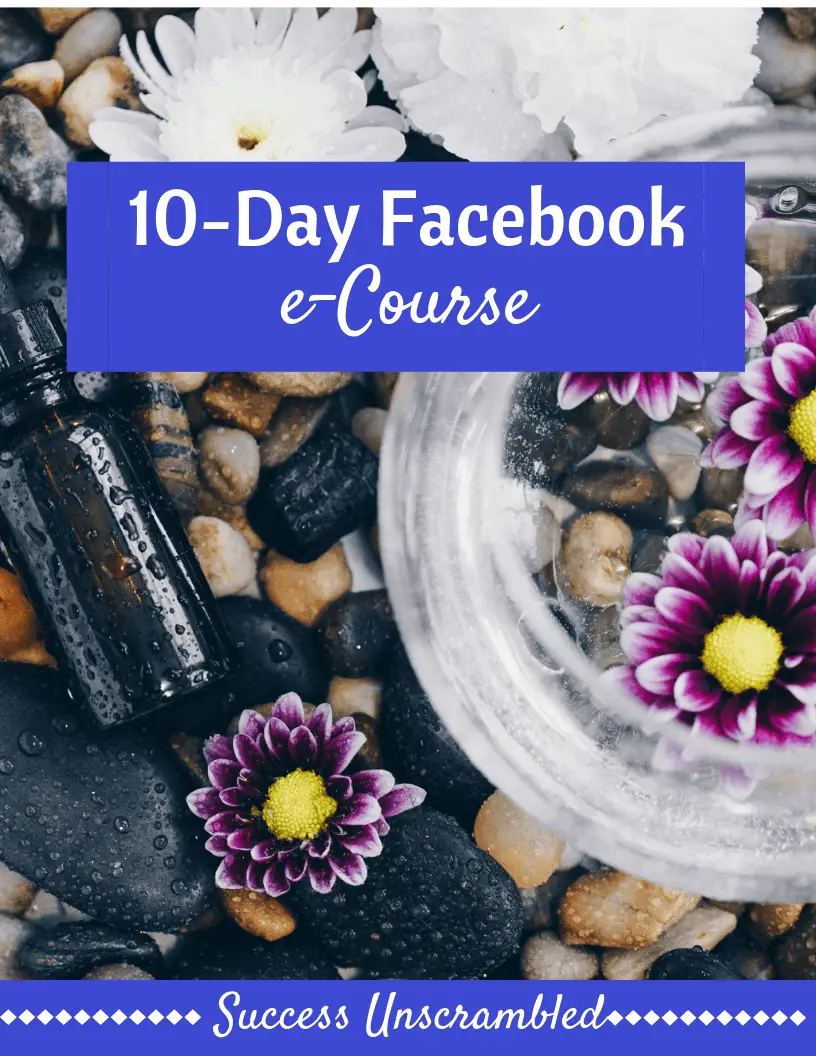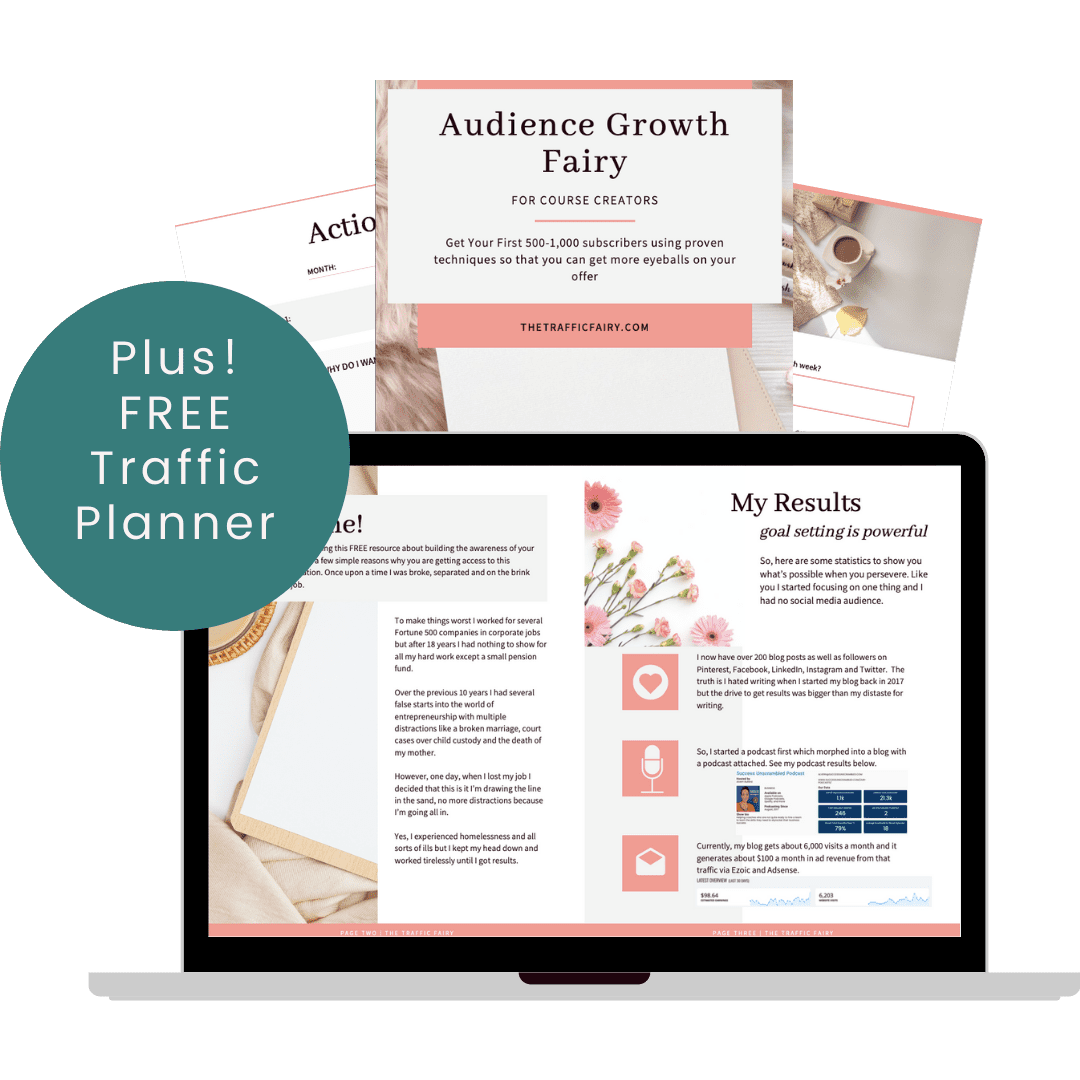Podcast: Play in new window | Download (Duration: 22:08 — 40.5MB) | Embed
Subscribe: Spotify | Amazon Music | Email | TuneIn | Deezer | RSS | More
We will look at the Google Keyword Planner, Books and Magazines then close with tradeshows and farmers market which is a wholesale element.
Alvern: Hello ladies. Alvern here. Today we’ll be looking at your Facebook business page market research.
Last week, we had part one, so today will be part two. Last week was Facebook business niche research, so the Facebook business market research.
Alright, so, in the breakdown, I’ll be covering five different areas, and I’m really, really hoping that I don’t go overboard, in terms of time. We may have to do a part three, depending on how quick this goes, but hopefully it will only be one part, as opposed to having a third part.
Alright, so, the five areas I’ll be covering today are AliExpress Express, forums, wholesale, books and magazines and the keyword planner.
Google Keyword Planner
So, let’s start with the keyword planner. The keyword planner is the Google Keyword Planner. You would need to login to access this one.
Essentially … I remember, a few years ago they had it that you can just access it without having to login but now you need to be logged in to access it.
All you need to have is a Gmail account or your own business account that’s linked to your Googlemail, for example.
When you look up the Keyword Planner, you have the option to go to the Google Keyword Planner.
Sometimes, when you login it takes you straight to the section to run campaigns and ads. Just ignore that, and at the very top, I think maybe it’s the right hand corner, you go in under the tools and you see the keyword planner there; you just click on that.
What it does, essentially, it allows you to research how many times specific keywords are being searched … well, probably not specific keywords … general keywords.
Because you have your narrow keywords, you’ve got your broad phrase search. We just realised I’ve probably never covered over a topic or podcast going on … explaining the whole idea of keywords and all of that, so I might actually have to do a podcast on keywords.
A keyword is, essentially, a word that a user would put into the search engine, or Google search engine, or Yahoo, or Bing, to look for something.
So, say for example, you want to look … a storm is coming, and say the storm was called Peter, and you want to see information in the news or articles or blogs written on Storm Peter.
You just type in Storm Peter, which is your keyword, and the results will come up in the search engine results pages.
This is for all the search engines, or even if you would look in some sites they have Google assisted search as well. If you have exact matched keywords … so if it’s, for example, Storm Peter, or you want to see if Storm Peter is going to be hitting Miami for example, you would put in Storm Peter Miami; that’s also an exact search.
Or if it is you have a more broader search like, damage done by Storm Peter in Miami, the keyword there is obviously Storm Peter, which is the exact match, but this is a phrase or more broad search.
That’s why they call phrase match or broad match. But if you just type in the two words, Storm Peter, that’s an exact match. Alright?
Alright, so, the Keyword Planner helps you to look at keywords searched, obviously, using the Google search engine, and how many times those keywords are searched every month. It isn’t really 100% accurate but it’s more or less there. It’s a good indicator.
And the reason why you want to do this is just to see, for example, you decide, like I mentioned in previous podcast, you wanted to go into, for example, the DIY niche, and you want to see how many people are searching for a phrase ‘how to restore a farm house,’ or ‘how to restore an antique wardrobe,’ or something like that, or ‘1960’s or 1950’s wardrobe,’ to be more specific.
So, ‘how to restore a 1950’s Edwardian wardrobe,’ for example. And you want to see how many people are searching for that, just in case you want to write an article about it.
If, for example, you get 100 searches, it gives you an indication of how many people are searching for that. And you can search by country, you can search by city, you can search by state, etc.
That’s the cool thing about this; you want to find if there is an audience available for your particular niche and for that particular article that you want to write about.
So you go in search, on the left hand corner you would see the bit where you put in the keyword phrase. You can select the country or city or state, and then click enter or search, and it will come up in the results. You can sort the results by competition, you can sort it by volume; you decide how to sort it.
What the cool thing about the Keyword Planner, it will actually give you the ability to, say for example, you want to lay out your blog and you want to find keywords that are related, so you can write related articles around a specific keyword, so broad or phrase match, it will give you an indication of what to write about, what to put a keyword about.
So, in terms of Facebook business market research, this will come in handy because it will show you what audiences out there are interested in. It may not be related directly to your Facebook interests or audience search, but, generally speaking, it will give you an idea as to what’s popular in the market place.
Results From Search
So, once you find the results from your search, make sure you take … You’ll probably get back roughly between 300 and 800 results, depending on what you’re searching for. Then you export that into a CSV file and you can map that out, in terms of what you want … what is the volume or the amount of people looking for your specific related topics.
The cool thing about it is, just to give you an idea, if you search by city, for example, you can … say, for example, your search brought up … the results brought up that there are 100 people in New Jersey, for arguments sake, looking for ‘how to restore and Edwardian 1950’s wardrobe using DIY methods.’ Alright?
Depending on the size of the people in the city, so say for example, if there are only … the Google search results … sorry, the Keyword Planner search results would give you an average between 10 and 100 people looking for it.
They used to be more specific years gone by, but now it’s they’re giving you an average between 1000 and 10,000, or between 100 and 1000, or whatever it is.
The cut-off point, depending on the competition, if the competition is really high and there are about 10 to 100 people searching for it, it’s not really a good indication.
But, if combined, if you add up all different keyword searches … going to be misspelt words or misspelt phrases or phrases that aren’t grammatically correct, or whatever it is, when you add up the total volume, as well as the competition, it shouldn’t be less than 1000 people a month looking for that specific niche, or using keywords within that specific niche. Okay?
Alright, so, let me just see if I forgot anything, in terms of the Keyword Planner. Yeah, so it should be one K+, and the low hanging fruit would be the ones that have medium to low competition but over 1000 searches a month.
And the cost per click … that’s another thing you need to look at. If the cost per click is very high … well, it normally is high when there’s high competition, and the cost per click obviously is low when there’s low competition.
So, judging on those three things, the cost per click, the competition, as well as the volume search per month, you can decide whether or not it’s worth your while jumping into that particular niche. If it’s too specific, you probably wouldn’t find any results. Sometimes it brings up zero results.
Or if … there probably is niche, or people within a niche, looking for your particular service or product, but you probably need to know what it is they’re searching for and then plug it into the Keyword Planner.

Grab The 10-Day Facebook e-Course
- Improve Your Facebook Game
- Learn New Tips + Tricks
- Get Some Facebook Secrets
- Improve Facebook Engagement
Books and Magazines
Alright, so, to help you know what, for example, the lingo is in that particular niche, the next one up is books and magazines.
So when you go into … it’s probably more magazines as opposed to books … well, books … because I covered this already, last week, with regards to looking in the Amazon books that’s up for sale, and you can actually look on the inside of the books.
So, say for example, if you’re writing an ebook or a Kindle book about a specific niche, then obviously books would come in very handy … they weren’t in the section in the book store.
So you go into a physical book store and do your research there. In the physical book store, as you know … well, most big book stores, they’re broken up into different sections, and you want to probably want to go and see what are the top books … Okay, let me back up a bit.
Music charts and videos and movies have the top 10 or the top 100 books or charts … books available in the charts. So when you go into the book store, there is a section, the top 10 or top 20 books for the week or for the month.
Have a look at those, and normally, there are two or three or maybe five books all around the same niche, talking, more or less, about the same thing. For example, self help books, or Bitcoin books, or blockchain, or … I’m trying to think, social media.
So there are always books within the top 10 or top 20, depending on the section; you have business sections, you have children’s, you have autobiographies, etc. It will give you a much more rough idea as what’s popular, what are people talking about, what is it that people are buying in terms of books.
Magazine, on the other hand … sorry … is more specific on the different hobbies that people are interested in.
So you find magazines on photography, on PCs, on Ipads, on home design, on DIY, on those model cars and model boats, all of those things. It will give you as to what people are reading, what’s happening in that particular niche at this particularly point in time.
I would advise you then to buy magazines for three months and see the ads in the magazines, to see what it is that people are advertising, the vendors are advertising in the magazine in those specific areas. Of course, wedding is another popular one, but you get the idea.
The cool thing about it, when you take up the magazine, you obviously bring it home, go through it, have a read of the articles and take note of the language that’s being used, the lingo for that particular niche.
A lot of people talking about, for example in photography, depending on the time of the year, they’re probably talking about landscape photography and the type of gloves that they use, thermal gloves, they might be talking about extra storage, lots of other things that they could be talking about.
Or trips; people always go on trips, for example, they go to the Nordics, so the Scandinavian countries, coming closer and closer to … as you head on to winter, because a really, really beautiful time of the year to capture the … sorry, I’ve forgotten the name now.
I can see it in my head, but I just can’t remember what it means. The lights, the Northern Lights. So it’s a really good time of the year to capture the Northern Lights with photography, so people go to Iceland and all of that.
So just take a look, whichever niche you decide that you would be interested in, go and buy the particular magazine in that niche and go and dig through.
Have a look at what’s happening in that particular niche, take a note of the lingo, and then, once you have a note down of what’s happening very specifically on, say for example, a specific product or a specific service, go into the Google search engines.
For example, using the Keyword Planner I talked in the previous paragraph, and stick in those keywords and see what comes up, how many people actually searching for that information, using the Google search engines. Even go back into the search engine itself and find the results as to what the competition looks like; what are they selling, etc.
Another thing you can also do then, once you find the different adverts in the magazines, is if you remember in last week I discussed the whole idea of using SpyFu or SEMrush, stick the … person who’s running the ads, stick their website address into SEMrush S-E-M-rush or SpyFu and see what ads they are running.
What is the key thing about … what is it that they’re selling in the ads? What’s is the key benefits, etc, that they are selling in the ads? Alright?

Grab The 10-Day Facebook e-Course
- Improve Your Facebook Game
- Learn New Tips + Tricks
- Get Some Facebook Secrets
- Improve Facebook Engagement
Trade Shows and Farmers Markets
I’m going to jump into wholesale, but I’m probably not going to be able to finish it today, because I don’t want to this one to be too long.
I’ll probably finish it next week. So, in terms of wholesale, two of the first places you would want to go and look for ideas, or just to get a feel of what’s in the niche, are trade shows and farmer’s markets.
Trade shows, let’s start with trade shows. They normally have trade shows on very niche topics. So you have a trade show on home … well, they call it the ‘ideal home trade show,’ so you’re going there and they sell all sorts of things for show.
People who … manufacturers, normally, would go into there and they would display what they have available. They’ve got wedding shows, they’ve got boat shows, all different kinds … I can’t even think of all of the different ones they have available. Sometimes, cosmetics … Yeah, but you get the idea. You have all of these shows that you can go in.
If it is you are thinking of one of those particular areas, you may need to travel a few hours or to a different country, to attend that very specific trade show in your niche.
But the cool thing is you actually get to meet the people who are selling; the manufacturers or the distributors at the trade shows. The cool thing when you meet them is you get to find out from them what’s hot, what’s happening, what’s taking off, etc. when you attend these shows.
You can even pick up a few samples that you can actually use to create videos when you’re creating your Facebook ads. You create videos on these specific products that you probably would be selling to your Facebook audience.
Farmer’s market: same story. And even … what do you call those, not necessarily garage sales, but there’s another one that’s kind of similar to that, where you go in and you obviously meet the people who are selling second-hand items, etc. But you want to find out …
okay, because sometimes things that’s rare or antique stuff that you can get at a good price, you can actually sell them at a much higher price when you get it at things like garage sales, or those reduced items … clearance sales. Okay?
I am going to stop right there because I don’t want this one to go on for quite a long time. I’m trying to remember if there is anything I need to cover on those two areas before I go.
Make sure you take either pictures or clippings of the ads in the magazines, so you can get an idea as to what words to use. If it’s effective in a magazine, it probably would most likely be effective online as well.
So you might have to buy magazines, actually, for six months, which isn’t quite bad. It’ll probably cost you between 20 and 40 dollars.
You just buy … Because if a business advertising in a magazine over a six month period, it probably means that whatever it is that they’re selling is giving them a return on their investment.
Alright? So ladies, we’ll leave it there for now. I’m really sorry that … I don’t want this thing to go on and on for a very long period of time.
I’m sorry about my throat, it seems to be I’m coming down with something, but we’ll get that sorted before next week. Thanks ever so much for joining the podcast toady, enjoy the rest of your day and the rest of your week. Until next time, bye for now.

